Filter by
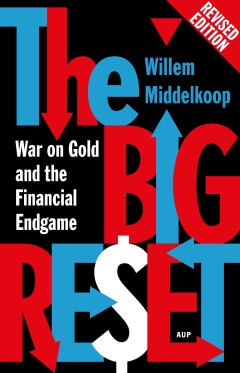
The big reset : war on gold and the financial endgame
A system reset seems imminent. The world's financial system will need to find a new anchor before the year 2020. Since the beginning of the credit crisis, the US realized the dollar will lose its role as the world's reserve currency, and has been planning for a monetary reset. According to Willem Middelkoop, this reset will be designed to keep the US in the driver's seat, allowing the new monet…
- Edition
- -
- ISBN/ISSN
- 9789462980273
- Collation
- 330p. : ill.
- Series Title
- -
- Call Number
- 332.4222 MID b
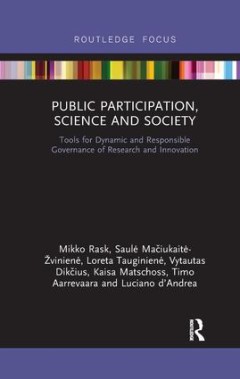
Public participation, science and society : tools for dynamic and responsible…
The field of public participation is developing fast, with phenomena such as citizen science and crowdsourcing extending the resource base of research, stimulating innovation and making science more accessible to the general population. Promoting public participation means giving more weight to citizens and civil society actors in the definition of research needs and in the implementation of…
- Edition
- -
- ISBN/ISSN
- 9781351272964
- Collation
- xvii, 133p. : ill.
- Series Title
- -
- Call Number
- 659.295 PUB p
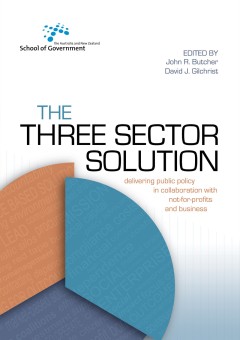
The three sector solution : delivering public policy in collaboration with no…
This collection of essays had its origins in a one-day workshop held in August 2015 at The Australian National University. Jointly convened by Dr John Butcher (ANZSOG) and Professor David Gilchrist (Curtin Not-for-profit Initiative) the purpose of the workshop was to bring together academic researchers, policy practitioners and thought leaders to address a variety of emerging issues facing poli…
- Edition
- -
- ISBN/ISSN
- 9781760460396
- Collation
- xxxi, 374p. : ill.
- Series Title
- -
- Call Number
- 361.763 THR t
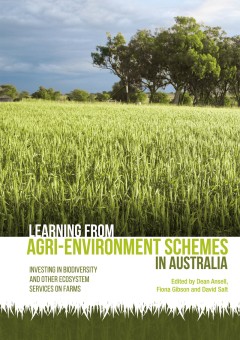
Learning from agri-environment schemes in Australia : investing in biodiversi…
Learning from agri-environment schemes in Australia is a book about the birds and the beef — more specifically it is about the billions of dollars that governments pay farmers around the world each year to protect and restore biodiversity. After more than two decades of these schemes in Australia, what have we learnt? Are we getting the most out of these investments, and how should we do thin…
- Edition
- -
- ISBN/ISSN
- 9781760460167
- Collation
- xxvii, 310p. : ill.
- Series Title
- -
- Call Number
- 333.95160994 LEA l
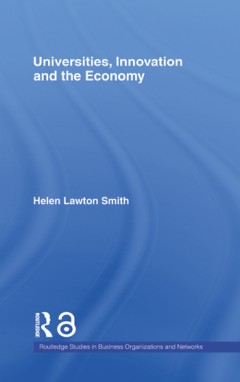
Universities, innovation and the economy
Universities are increasingly expected to be at the heart of networked structures contributing to society in meaningful and measurable ways through research, the teaching and development of experts, and knowledge innovation. While there is nothing new in universities’ links with industry, what is recent is their role as territorial actors. It is government policy in many countries that univer…
- Edition
- -
- ISBN/ISSN
- 9781134344185
- Collation
- xii, 265p. : ill.
- Series Title
- -
- Call Number
- 338.476200094 SMI u
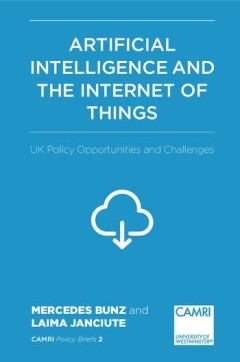
Artificial intelligence and the Internet of Things : UK policy opportunities …
"Through algorithms and artificial intelligence (AI), objects and digital services now demonstrate new skills they did not have before, right up to replacing human activity through pre-programming or by making their own decisions. As part of the internet of things, AI applications are already widely used today, for example in language processing, image recognition and the tracking and processin…
- Edition
- -
- ISBN/ISSN
- 9781911534846
- Collation
- 27p. : ill.
- Series Title
- -
- Call Number
- 384.33 BUN a
 Computer Science, Information & General Works
Computer Science, Information & General Works  Philosophy & Psychology
Philosophy & Psychology  Religion
Religion  Social Sciences
Social Sciences  Language
Language  Pure Science
Pure Science  Applied Sciences
Applied Sciences  Art & Recreation
Art & Recreation  Literature
Literature  History & Geography
History & Geography